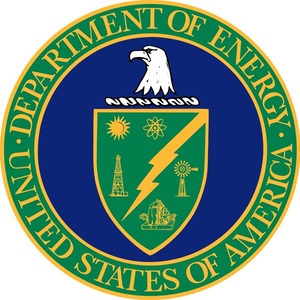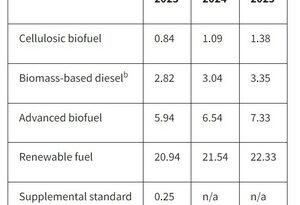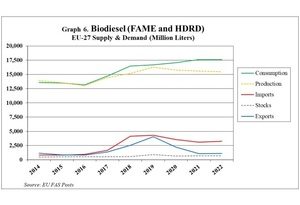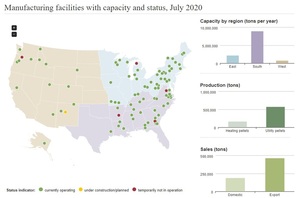DOE opens $59M FOA for advanced biofuels, ethanol GHG reductions
Energy Disrupter
ADVERTISEMENT
The U.S. Department of Energy on June 1 opened a $59 million funding opportunity to support the scale-up of integrated biorefineries and greenhouse gas (GHG) reduction in first generation ethanol production. The initiative supports the production of renewable diesel, aviation, marine and rail fuels.
A funding opportunity announcement (FOA) published by the DOE’s Bioenergy Technologies Office explains that the funding supports high-impact technology research, design and development (RD&D) to accelerate the bioeconomy and, in particular, the production of low-carbon fuels for aviation, marine, rail and long-haul trucking industries. The FOA also aims to strengthen current first-generation corn ethanol production facilities by reducing their overall carbon footprint.
Applications can be submitted under four primary topic areas. The first focuses on pre-pilot scale-up of integrated biorefineries for the production of sustainable aviation fuel (SAF), renewable diesel, sustainable marine fuel, or sustainable rail fuel at achieves at least a 70 percent GHG reduction. Eligible feedstocks include lignocellulosic feedstocks, algae, organic wet waste, sorted municipal solid waste (MSW), food waste, biogas, grain starch, oilseed crops, C&D waste and waste carbon dioxide.
The second topic area focuses on the pilot scale-up of integrated biorefineries. The eligible fuels and feedstocks are similar to those included under the first topic area. The resulting fuel must also achieve at least a 70 percent GHG reduction. Pilot projects awarded funding under the second topic area must produce at least 20,000 gallons of biofuel per year equivalent, according to the FOA.
The third topic area focuses on the demonstration scale-up of integrated biorefineries. The requirements for fuel type, feedstocks and GHG reductions are largely the same as the first two topic areas, but the demonstration projects must produce at least 1 million gallons of biofuel per year equivalent.
The fourth topic area focuses on emission reductions at first-generation corn ethanol plants. According to the FOA, anticipated approaches for the fourth topic area include the use of waste and underutilized carbon feedstocks, carbon capture and utilization, or biorefinery technologies that take advantage of existing assets and infrastructure, such as bolt-on and retrofit technologies. Other possibilities include, but are not limited to, the inclusion of bioproducts, and the development of predictive models and high-performance computing as tools to accelerate scale-up. The DOE is not interested in funding proposals that include carbon capture and sequestration (CCS).
According to the FOA, $49 million of the $59 million in available funds are expected to fund projects under the first, second and third topic areas. The remaining $10 million is expected to fund projects under topic area four.
The DOE said it expects to fund between 4 and 20 projects under this FOA.
An informational webinar on the FOA is scheduled for June 15. Concept papers must be submitted by July 8, with the submission deadline for full applications set for Sept. 9.
Additional information is available on the DOE website and under DE-FOA-0002638 on the DOE’s Energy Efficiency and Renewable Energy Funding Opportunity Exchange.
















